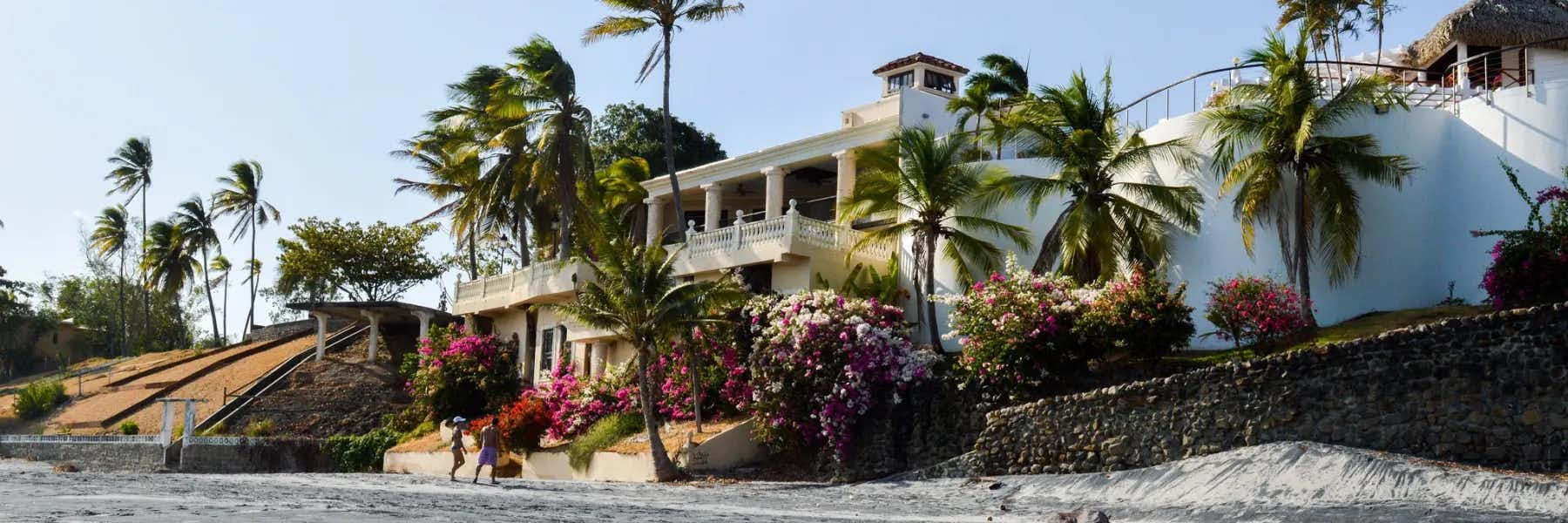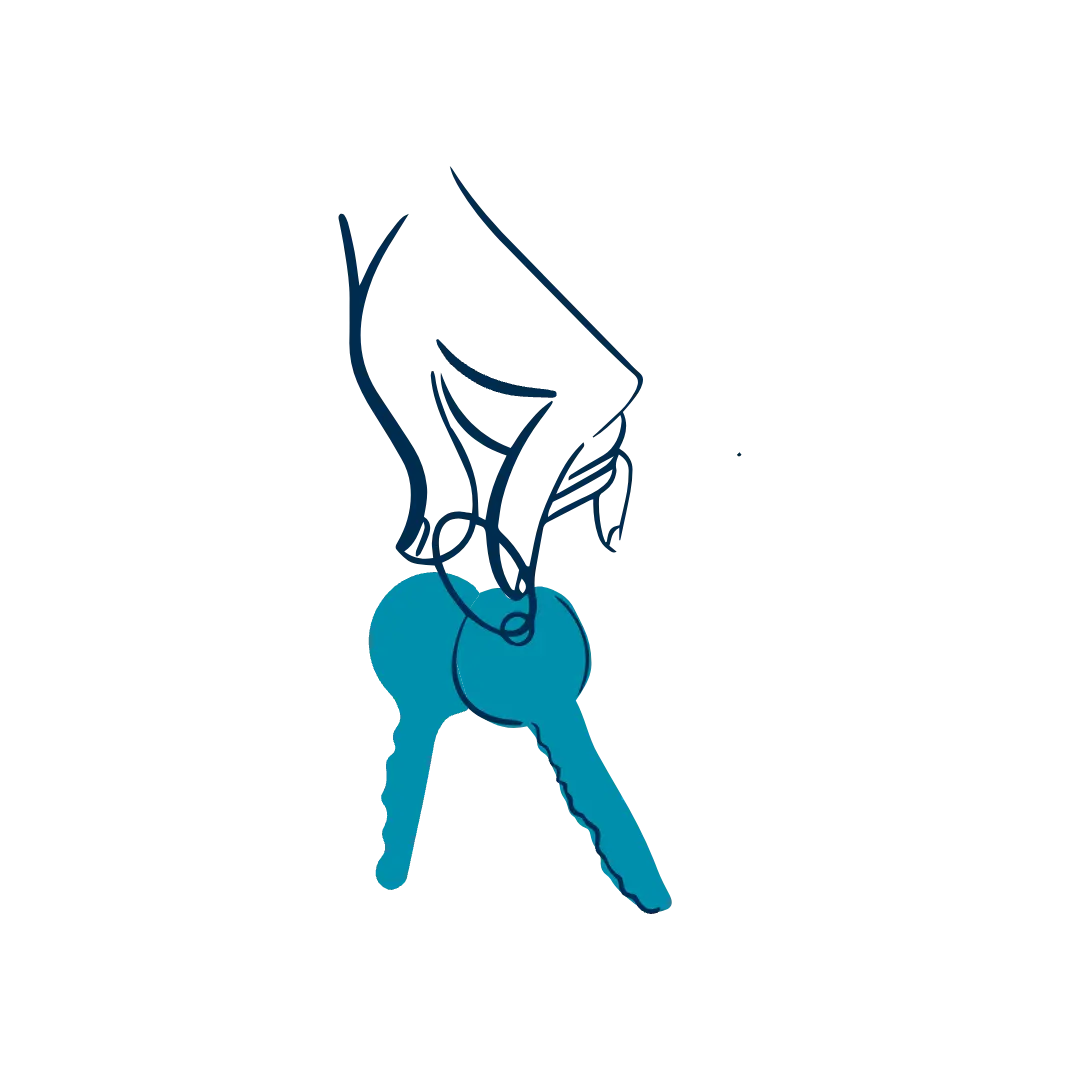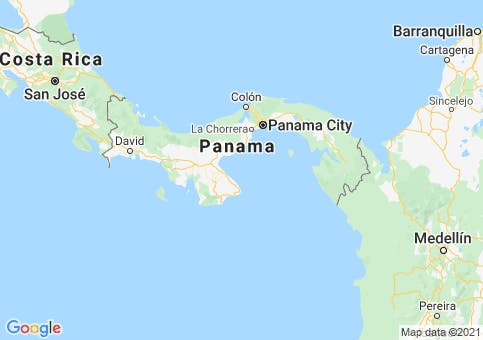When you come to warm, welcoming, tropical Panama, you see the appeal almost instantly. You touch down in a modern, cosmopolitan capital with a dizzying array of hotels and world-class restaurants. Palm trees line the beautiful bayside, and the ocean sparkles sapphire blue in the afternoon sun. The sound of the waves accompanies you as you take your first walk, breathing lungfuls of fresh salt air and turning your face to bask in the rays of good old Sol.
Panama is in the heart of the tropics, but you see the sun nearly every day of the year. We’re completely outside the hurricane belt, so that means no hurricanes, ever. The climate is mild—even on the beach at high noon, temperatures rarely climb above 88 F. In lush green mountain towns, days are often in the 70s, and the coldest it will get at night is about 60 F (you’ll never need air conditioning or heating, either).
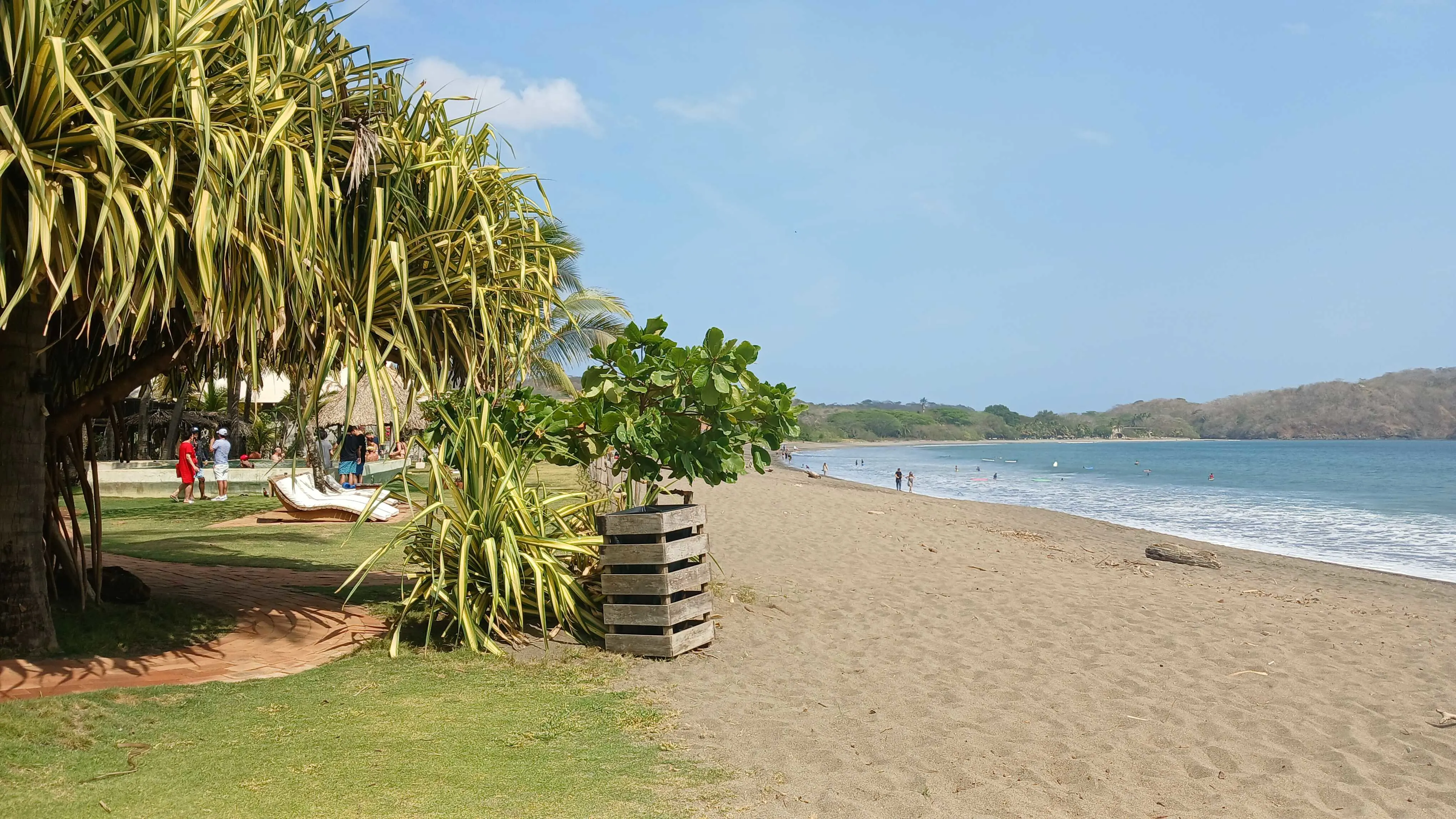
Not a city person? You can live on beaches or islands… on Panama’s sun-drenched Pacific Coast, or on the turquoise waters of the Panamanian Caribbean. Or in one of the cool mountain hamlets that look like they belong in Switzerland instead of here, a mere 600 miles from the Equator.
Panamanian culture is rich and fascinating, from the indigenous tribes to the folklore and festivals. Panamanian people are known for being warm, welcoming, and fun-loving. But Panama is welcoming in other ways, too. With over a hundred years of consistently foreigner-friendly policies (including the use of the U.S. dollar), Panama has long been an international haven.
Home to the Panama Canal, the Hub of the Americas (the region’s best and busiest airport), and a large banking sector, Panama has a strong diversified economy that has proven incredibly resilient. Still, a couple can live well in Panama on as little as $2,100 a month—including rent. And on $3,100 a month you can live rather luxuriously, often feeling like a jetsetter. (You have only to roam the islands and beaches of Panama to experience it for yourself.)
Nearly everywhere you go, you’ll find the same modern conveniences and amenities that make Panama so great, including potable tap water, excellent internet and cell phone coverage, upscale supermarkets, and more.
Steps to Moving to Panama
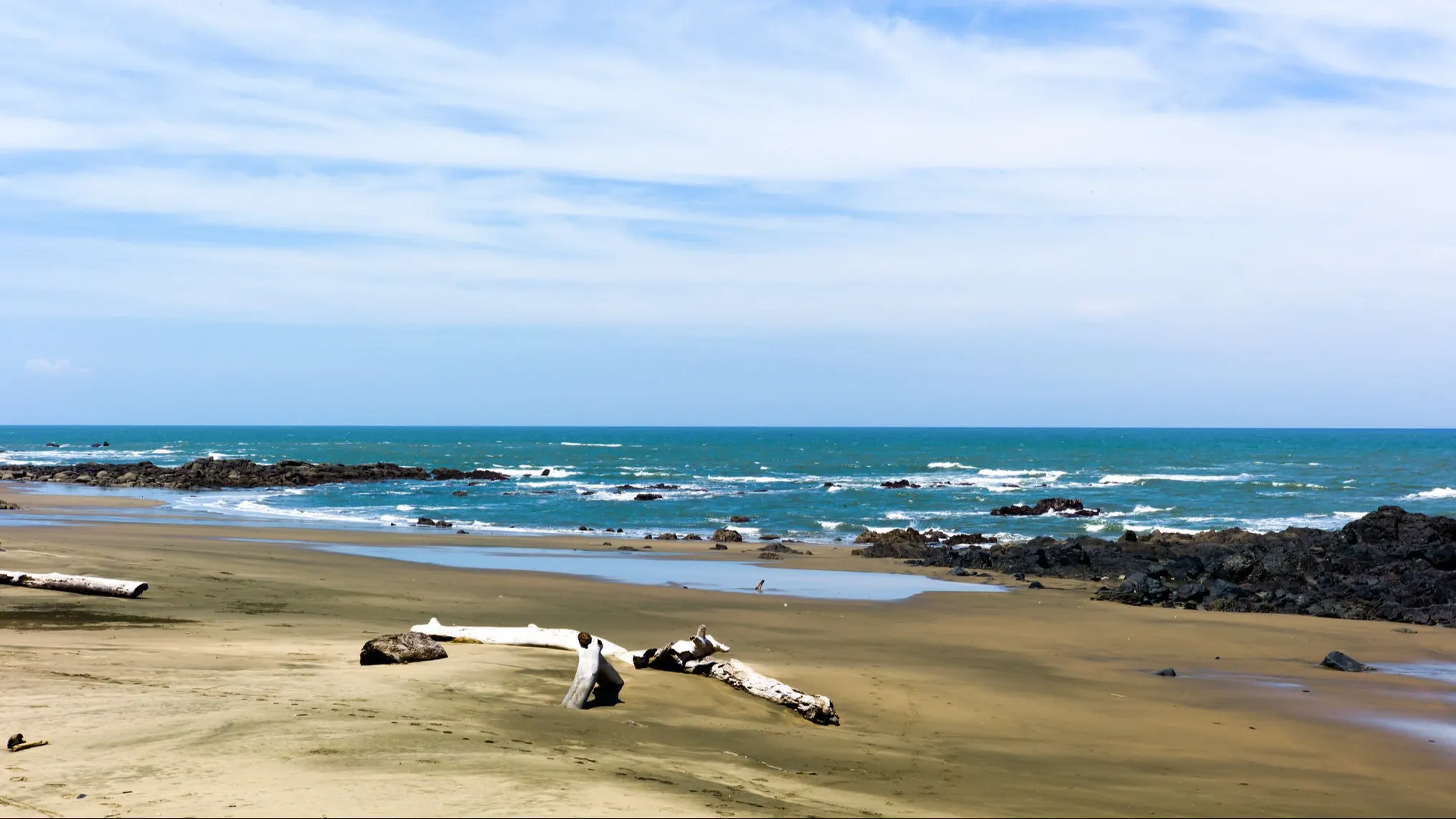
Here on the International Living website, we aim to make researching your dream life exciting and fun. We have articles on different regions and profiles of expats who live in them. In addition, IL’s Annual Global Retirement Index can help you analyze Panama’s performance in important categories, such as housing, visas, retiree benefits, cost of living, and more.
Use our information to compile your short list of destinations in Panama that you’re interested in scouting or test-driving over an extended stay. If you’re a US or Canadian citizen, you can visit Panama for up to six months without applying for a tourist visa.
If you find you’re becoming serious about Panama, you’ll want to start learning Spanish (unless you’re already fluent). Though there are generally enough English speakers to get by without it, some basic Spanish will help you talk to taxi and bus drivers, as well as clerks at supermarkets and other shops.
You’ll also want to get a jump on the residency process. Here’s where Panama shines:
I. The Pensionado program: If you can prove you are currently receiving a pension of at least $1,000 a month, you’ll definitely want to consider the Pensionado program. Not only does it offer you easy and permanent legal residence, but it also entitles you to retiree discounts on everything from doctor’s visits and medication to hotel stays and meals at restaurants.
In Panama, pensionados or retirees with legal residence are entitled to:
50% off entertainment such as movies, concerts, and sporting events, 30 to 50% off hotel stays
30% off bus fares (applies to ferries and trains, too)
25% off airfare bought and starting in Panama, 25% off power bills
15-25% off at restaurants
15-20% off hospital bills, medication, and consults
II. The temporary telework visa: For remote workers (or anyone with an income from outside Panama), this visa offers you temporary residence for up to 18 months. You’ll need to show that you have medical insurance and an income of at least $3,000 a month ($4,000 a month for families).
III. The Friendly Nations visa: If you decide that you want to buy a home and become a permanent resident, this may be the perfect option. It requires an investment of $200,000, and you can do this by buying a home or via a three-year fixed-term deposit.
Here are the most important requirements for obtaining a residency visa in Panama: ·
Physical presence: Be in Panama to file your application and receive the permit
Marriage certificate: Only for spouses applying together
Health certificate: Quick and easy to obtain in Panama
Clean police record: From the FBI (for USCs) or the RCMP (for Canadians)
Authentication: For your foreign documents
Finances and the Cost of Living in Panama
Panama has low taxes and plenty of affordable housing. In popular destinations like Panama City, the beach hub of Coronado, or the mountain haven of Boquete, you could spend anywhere from $900 to $1,700 a month to rent in a desirable or central area. Add to that utilities, internet, cell phone data, supermarket spending, transportation, and routine outing or entertainment expenses, and your monthly outlay will likely be $1,600 to $3,000.
Slightly more rural or remote parts of the country are also attracting expats with uncrowded beaches or inexpensive farmland. In alluring destinations like the fishing village of Pedasí or the mountain town of Volcán, you could spend $300 to $700 a month less.
Working in Panama
Often, you can work independently as a digital nomad, freelancer, or consultant in Panama with little to zero paperwork. (If your income is foreign, you won’t need to pay any Panamanian income tax.)
Many expats have come here to open businesses like bars and B&Bs.
You can get a work permit if you find a job at a Panamanian company (bear in mind that salaries are generally much lower here than in the States or Canada).
Healthcare
Panama has public hospitals that you can use at extremely low cost, as well as top-notch private facilities preferred by expats for expedient and affordable care. Many doctors have studied in the States and speak English.
Health insurance is likewise inexpensive, though many expats with pre-existing conditions pay for minor healthcare in Panama out of pocket (and return to the States to use their Medicare for anything major). For US veterans, Panama has a hospital that accepts valid VA-FMP, TRICARE, or CHAMPVA.
Safety
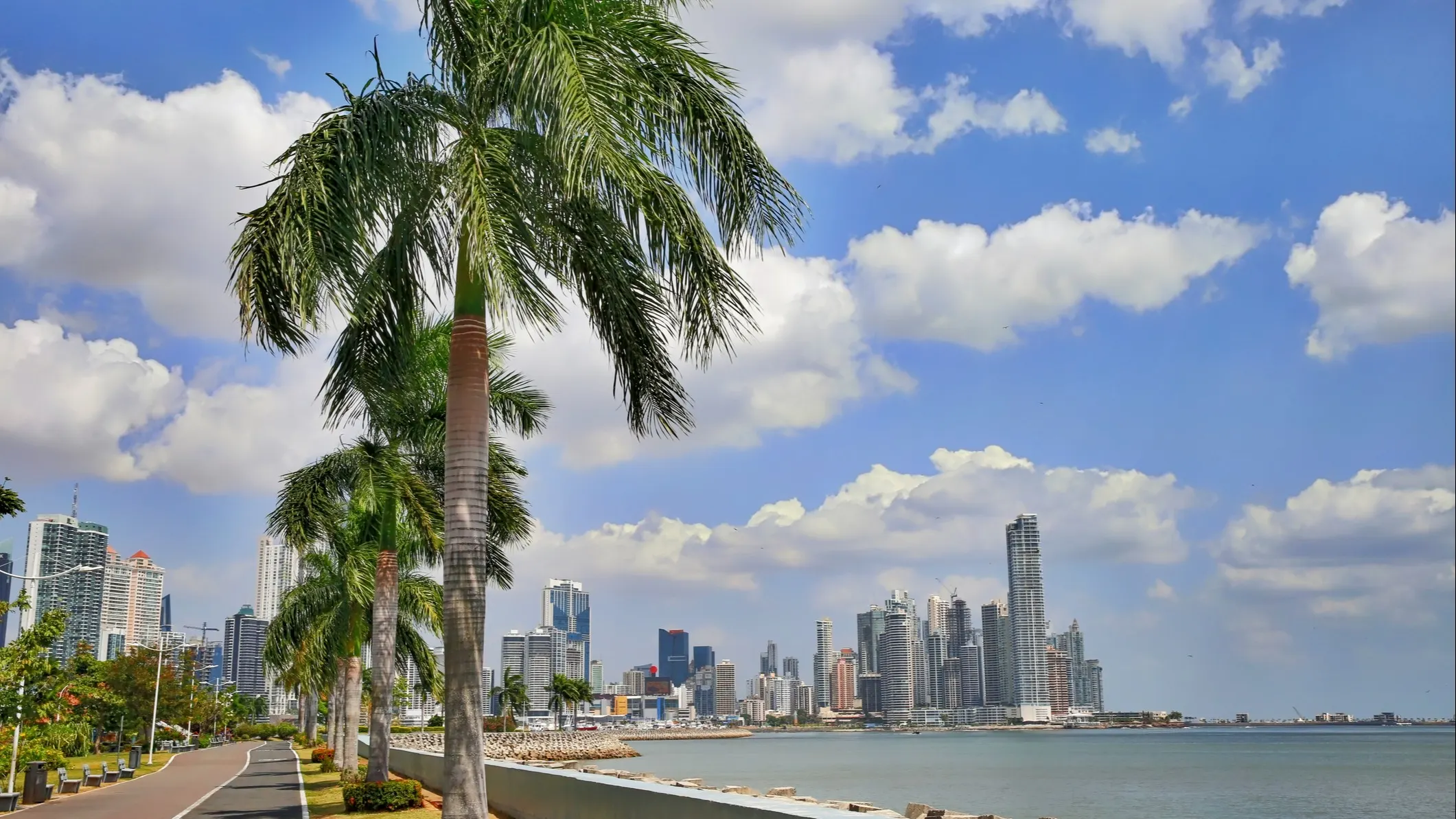
It is generally safe to travel throughout Panama, whether you’re a woman or man on your own or traveling with a spouse or in a group, as it’s easy to stick to nicer areas and avoid becoming a target. Drug/gang-related activity does not tend to affect people here unless they’re involved in organized crime. You’ll see that many Panamanians drive nice cars and wear jewelry when going out, day or night, without fear. Racially and politically motivated crime and school or random shootings are not a concern in Panama. You’ll note that travel advisories (such as those issued by the US Department of State) tend to focus on remote areas near the Colombian border (expats have no reason to travel to these areas).
Moving Your Pets to Panama
It’s relatively easy to bring dogs and cats into Panama. You can use a Panamanian relocation service or law firm or handle things yourself; just make sure you plan ahead, as documentation is time-sensitive. You’ll need to get health certificates for your pet(s) within 10 days of travel and get them certified by the appropriate local authority (USDA or Canadian Food and Inspection Agency) and by a Panamanian embassy or consulate (or Apostille).
Expat Locations in Panama
There’s something for everyone (and every budget) in Panama.
Panama City
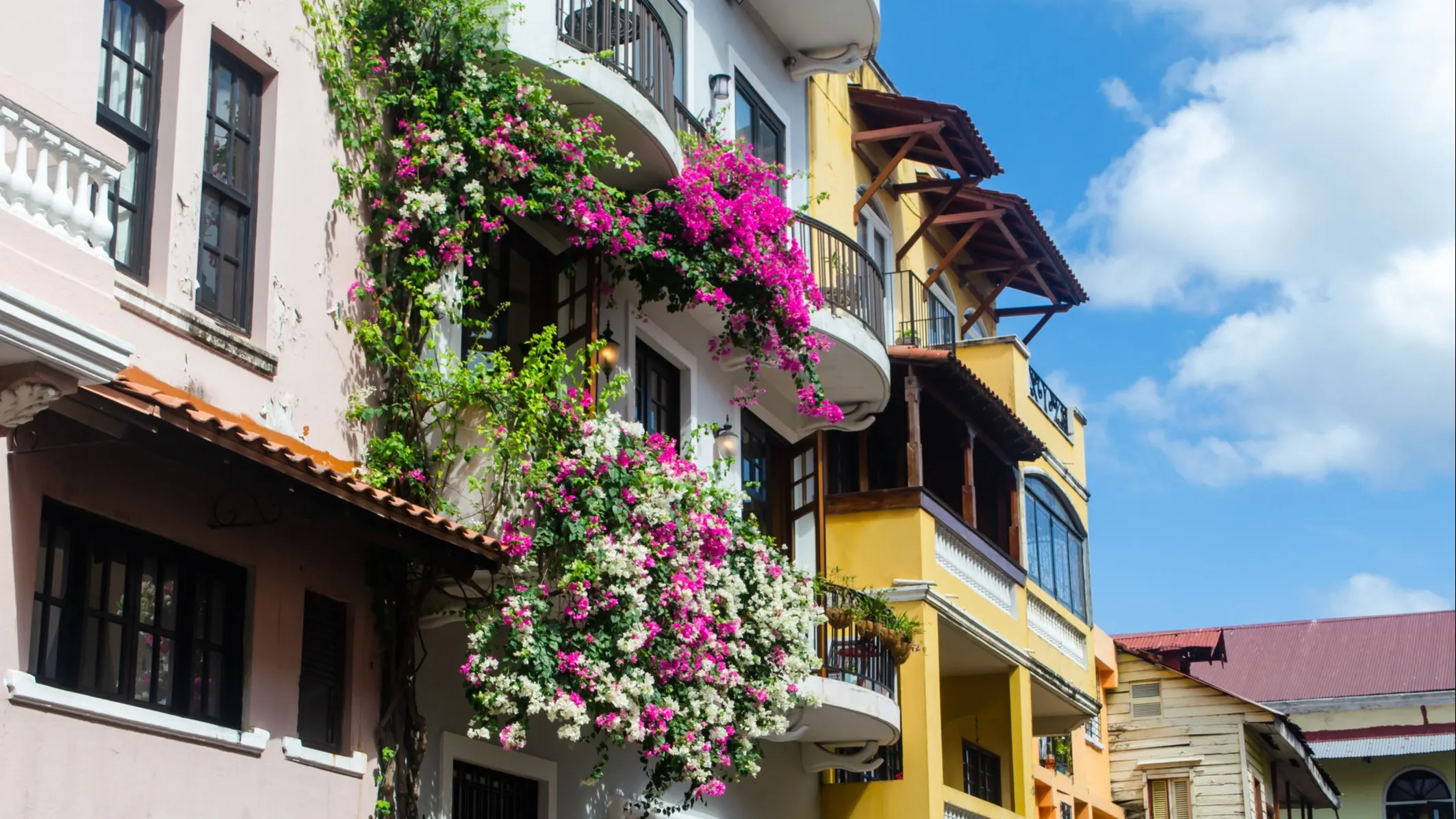
I love watching jaws drop when people see the Panama City skyline for the first time. It’s an exciting, cosmopolitan city like New York, but with warm, sunny weather all year long. The nightlife sizzles, and there are too many cultural and sporting events to keep track of. You can enjoy a luxury stay and play golf at a Nicklaus Design course at the posh seaside Santa Maria resort. Or pay $60 for a room in a beautiful Airbnb in a green, garden-filled neighborhood close to the English-language Ancon Theater Guild.
If you fall in love (like I did), you can rent a city-center condo for as little as $1,000 a month. Or go luxury in a building with ocean views (and a gym and massive pool), waking distance from Casco Viejo (the historic nightlife district), the Cinta Costera (the city’s incredible bayside promenade and recreation hub), and Pacifica Salud (a Johns Hopkins International affiliate hospital)… for $1,600 fully furnished.
Coronado
Just 65 miles from the buzzing capital, the beach region around the hub of Coronado is loved by Panamanians and expats alike. With lower rainfall and humidity, life here is truly sunny and bright. From pharmacies and supermarkets to gourmet and home improvement stores, you have everything you need in Coronado.
Here and in neighboring townships like Gorgona, you can rent an apartment on a beautiful, uncrowded beach for as little as $1,200 a month. I recently bought a 1,130-square-foot ocean-view apartment in a luxury tower on a golf course for $155,000. Come down and find your own steal.
Boquete
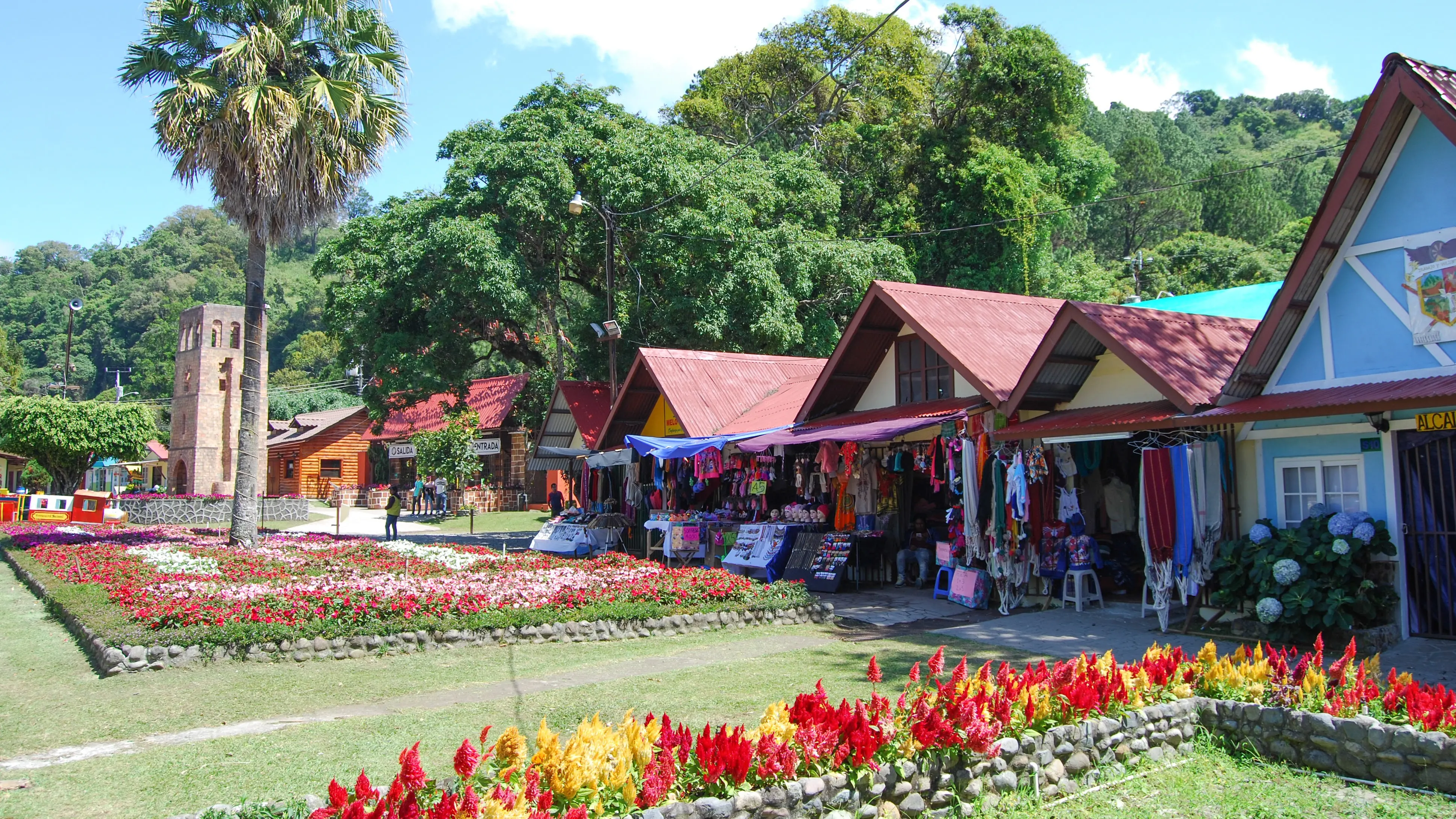
Panama’s most popular highland town, Boquete, is a lush, verdant district of valleys and mountainsides. With ample sunshine as well as frequent misty rains, this is Panama’s breadbasket. Some of the world’s most prized coffee beans come from this region, where the views are the stuff of dreams. If you’re outdoorsy, you’ll find it hard not to fall in love. You won’t be alone, as hundreds have come here from North America, Europe, and beyond. This is one of the world’s top retirement destinations and home to one of Panama’s most active expat communities. Temperatures here are springlike all year long, so you can enjoy 75 F weather while hiking, birding, gardening, barbecuing with friends, and more…
Keep in mind that there are many more great destinations—you’ll find inspiring articles on Pedasí, Venao, Volcán, and others in International Living magazine.
Things I Wish I’d Known Before Moving to Panama
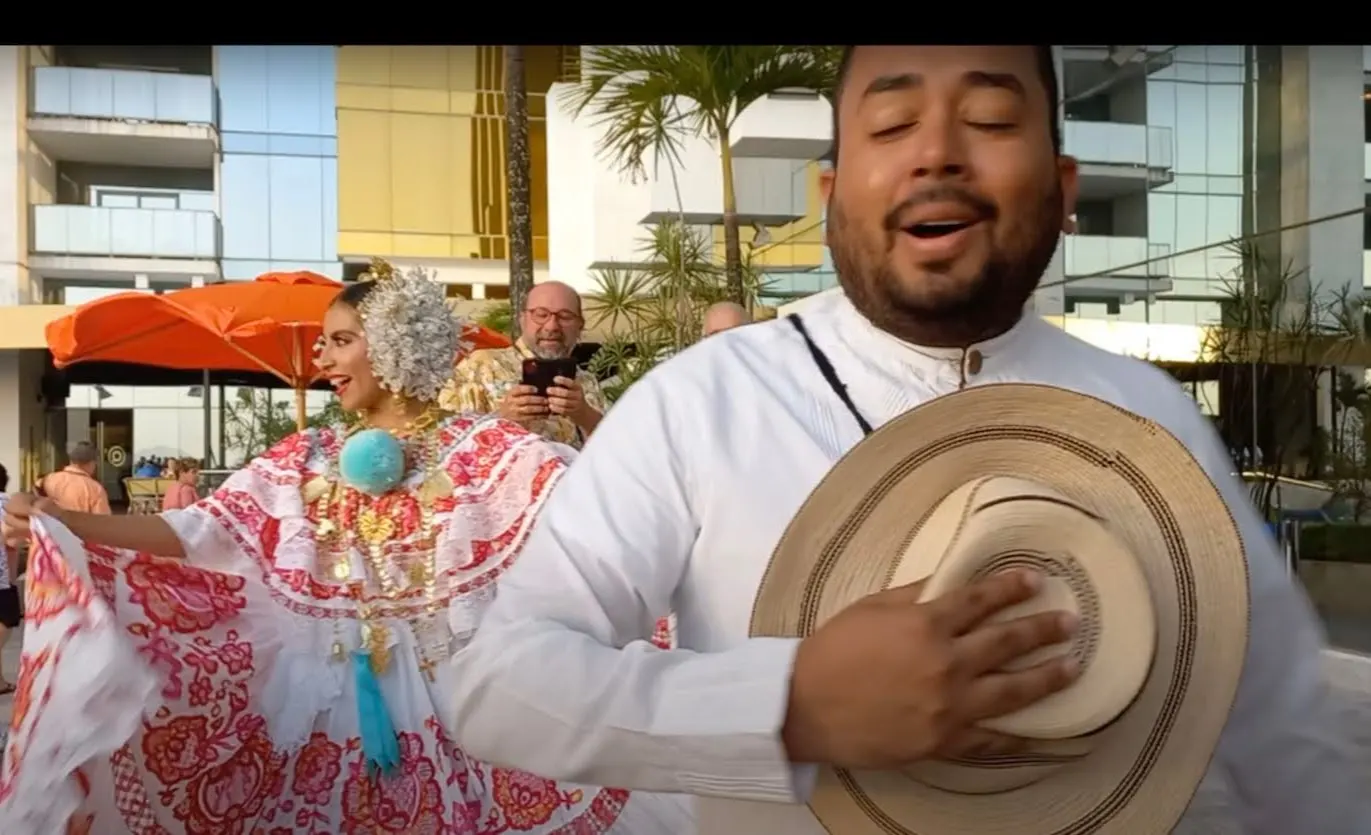
“Prepare yourself for the mañana syndrome” – this is perhaps the most oft-repeated piece of advice about moving to Panama (and indeed, anywhere else in Latin America). It means that you should prepare yourself for very different notions of punctuality.
And yes, you do want to learn about cultural differences—it’s easier to be a good expat when you understand the country and its people. But what I really wish I’d known before moving here is that many of the so-called “tradeoffs” would eventually become my favorite things about Panama.
There’s a saying here—a common response used in a thousand different ways: Cero estrés. It means “zero stress.”
“I’m so sorry, I won’t be able to meet you for dinner today after all,” you might say.
“Cero estrés! We’ll do it another time!”—this is the type of gracious response you can expect.
When I meet up with friends or go out to run errands, I encounter patience and understanding. I’ve also found that rules can be a little more flexible here.
Sure, no place is perfect…Panama has its faults. People here aren’t quite as patient when they get behind the wheel of a car! (Think Disney’s 1950 classic, Motor Mania.) But generally, I’d say that Panamanians know (and have taught me) how to live.
Final Word on Panama
I chose Panama because it checked more boxes than any other country in the Western Hemisphere. Yes, the intangibles are important, too. You want to fall in love with whatever country you choose. But without the right infrastructure to meet your personal wants and needs… love will only take you so far. Other countries may beat Panama in a category or two, but when it comes to overall value, proximity, and desirability, Panama is the clear winner.
Get Your Free Panama Report Today!
Get Your Free Panama Report Today!
Learn more about a healthier outdoor life in Panama and other countries in our daily postcard e-letter. Simply enter your email address below and we'll send you a FREE REPORT -- Panama: Easy, First-World Living and the World’s Best Retiree Program.

By submitting your email address, you will receive a free subscription to IL Postcards and special offers from International Living and our affiliates. You can unsubscribe at any time, and we encourage you to read more about our Privacy Policy.
